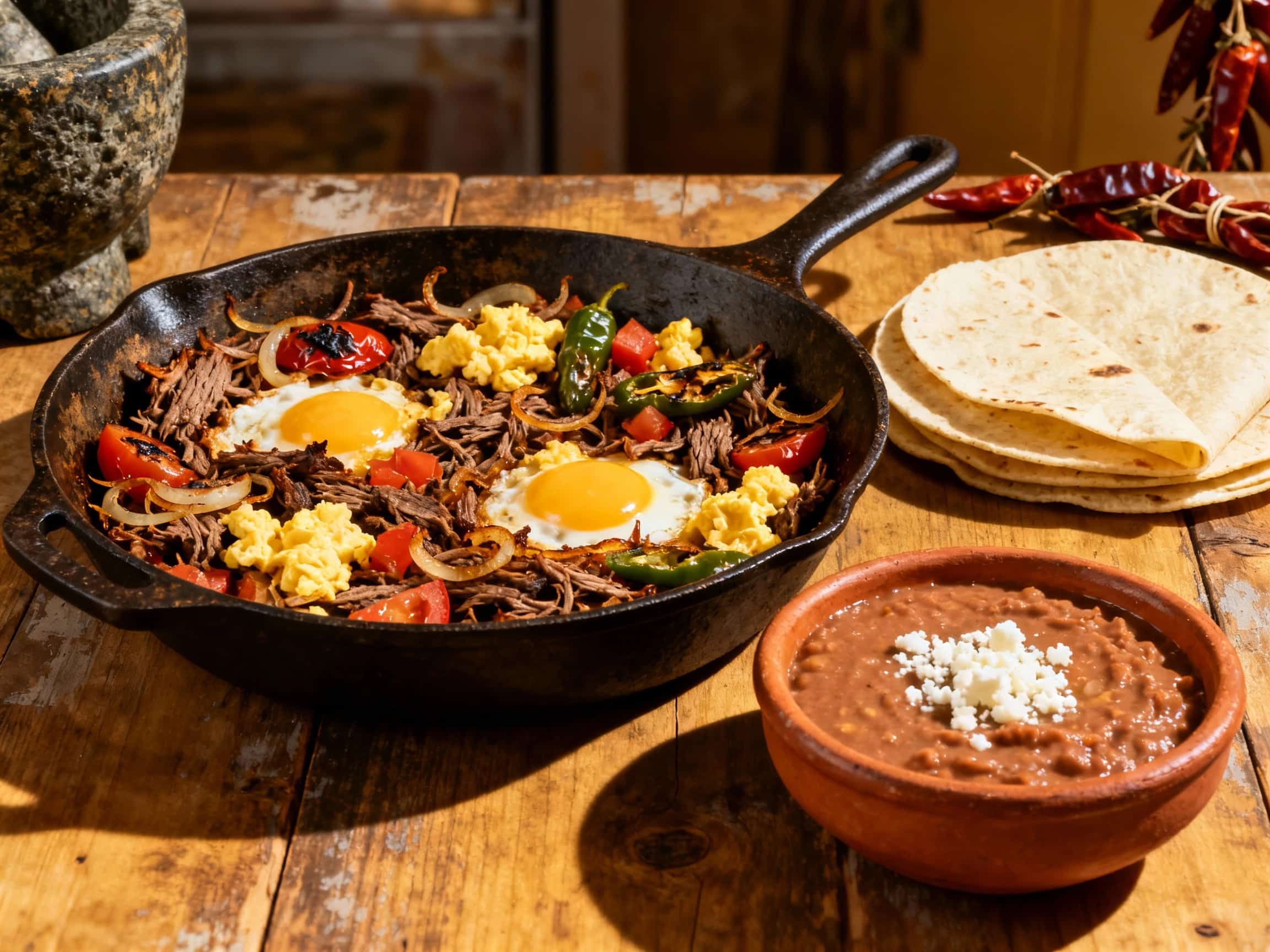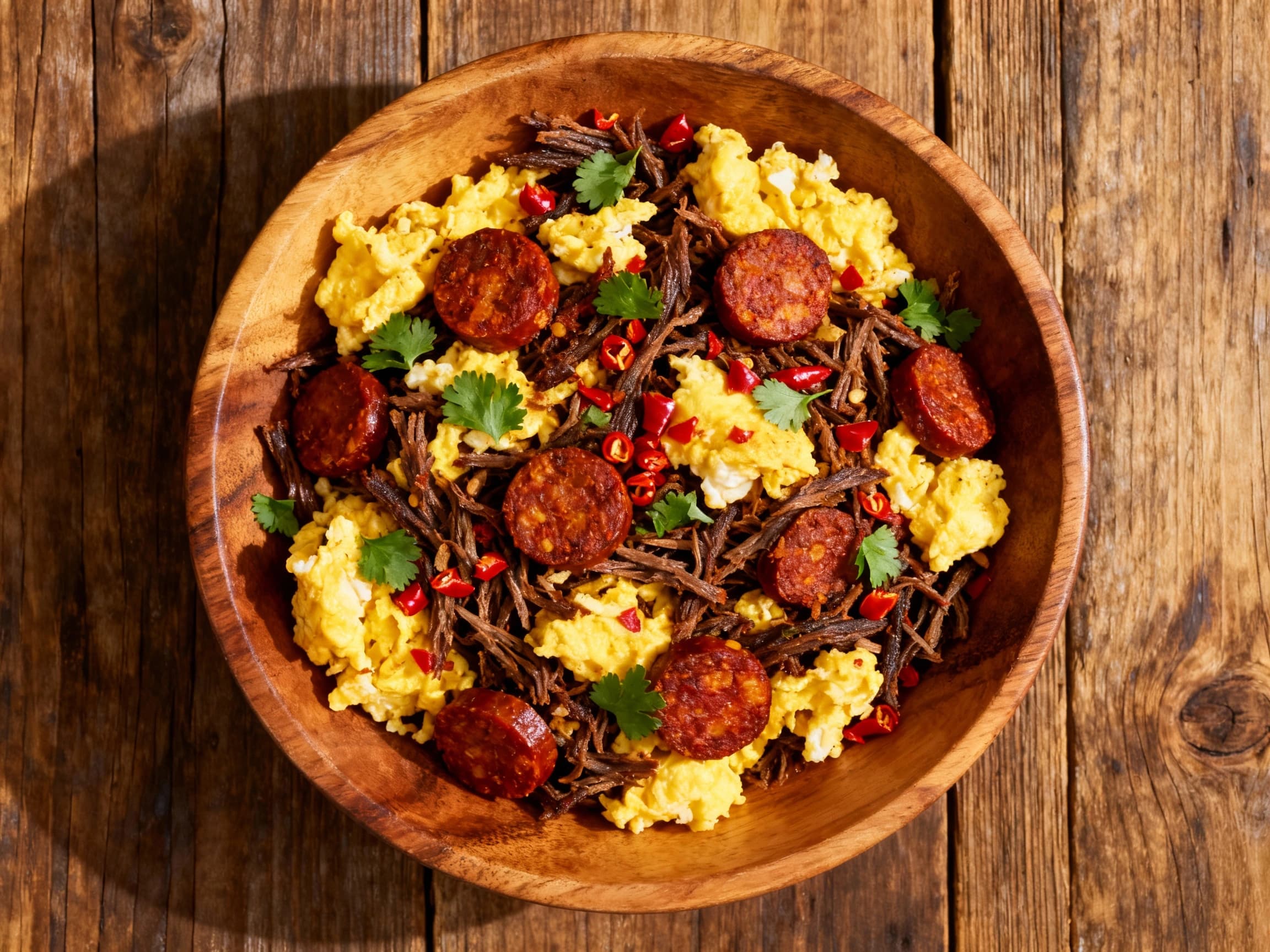
Machaca con Huevo
Machaca con Huevo
- Country
- Mexico
- Region
- Northern Mexico
- Recipes
- 2 Recipes
Origins & Characteristics of Machaca con Huevo
Machaca con Huevo is a foundational dish in the culinary landscape of Northern Mexico, particularly in states like Sonora, Chihuahua, and Durango. It is a hearty and flavorful breakfast or brunch staple, embodying the robust and resourceful cooking traditions of the region. The star ingredient, machaca, is a form of dried, shredded beef that dates back to the colonial era, when drying meat was a vital method of preservation for cattle ranchers and travelers in the arid northern territories. This practice allowed meat to be stored for extended periods without refrigeration, making it an essential food source for vaqueros (cowboys) and settlers. The preparation of machaca involves salting and sun-drying beef, then pounding or shredding it until it resembles a coarse floss. When preparing Machaca con Huevo, the dried machaca is rehydrated, often by lightly frying it, and then cooked together with scrambled eggs, typically with diced tomatoes, onions, and serrano or jalapeño chilies. The result is a savory, textural dish that is both comforting and energizing. It's often served wrapped in warm flour tortillas, accompanied by refried beans, and sometimes a side of fresh salsa. More than just a meal, Machaca con Huevo tells a story of survival, adaptation, and the enduring culinary legacy of Northern Mexico's ranching culture, reflecting the ingenuity of turning simple, preserved ingredients into a deeply satisfying and iconic regional dish.
History of Machaca con Huevo
The practice of drying and shredding beef (machaca) becomes widespread in Northern Mexico as a preservation method.
Machaca con Huevo emerges as a popular and practical meal for ranchers and rural communities in Northern Mexico.
With increased urbanization, Machaca con Huevo transitions from a strictly rural staple to a beloved breakfast dish in cities across Northern Mexico.
The dish gains recognition beyond Northern Mexico, appearing on menus in other parts of the country and in Mexican-American communities.

